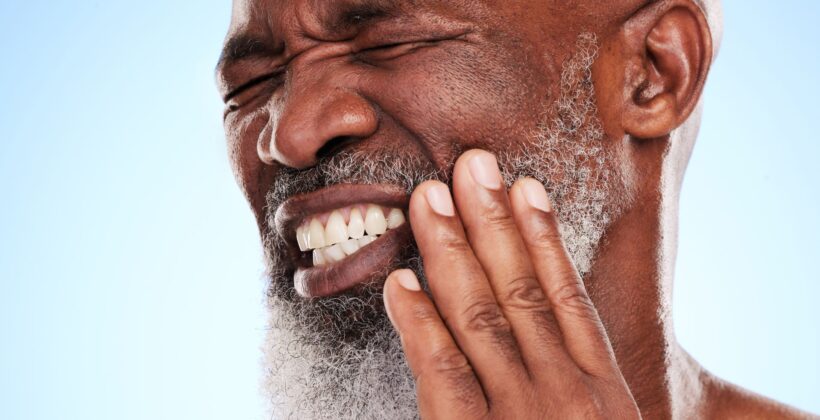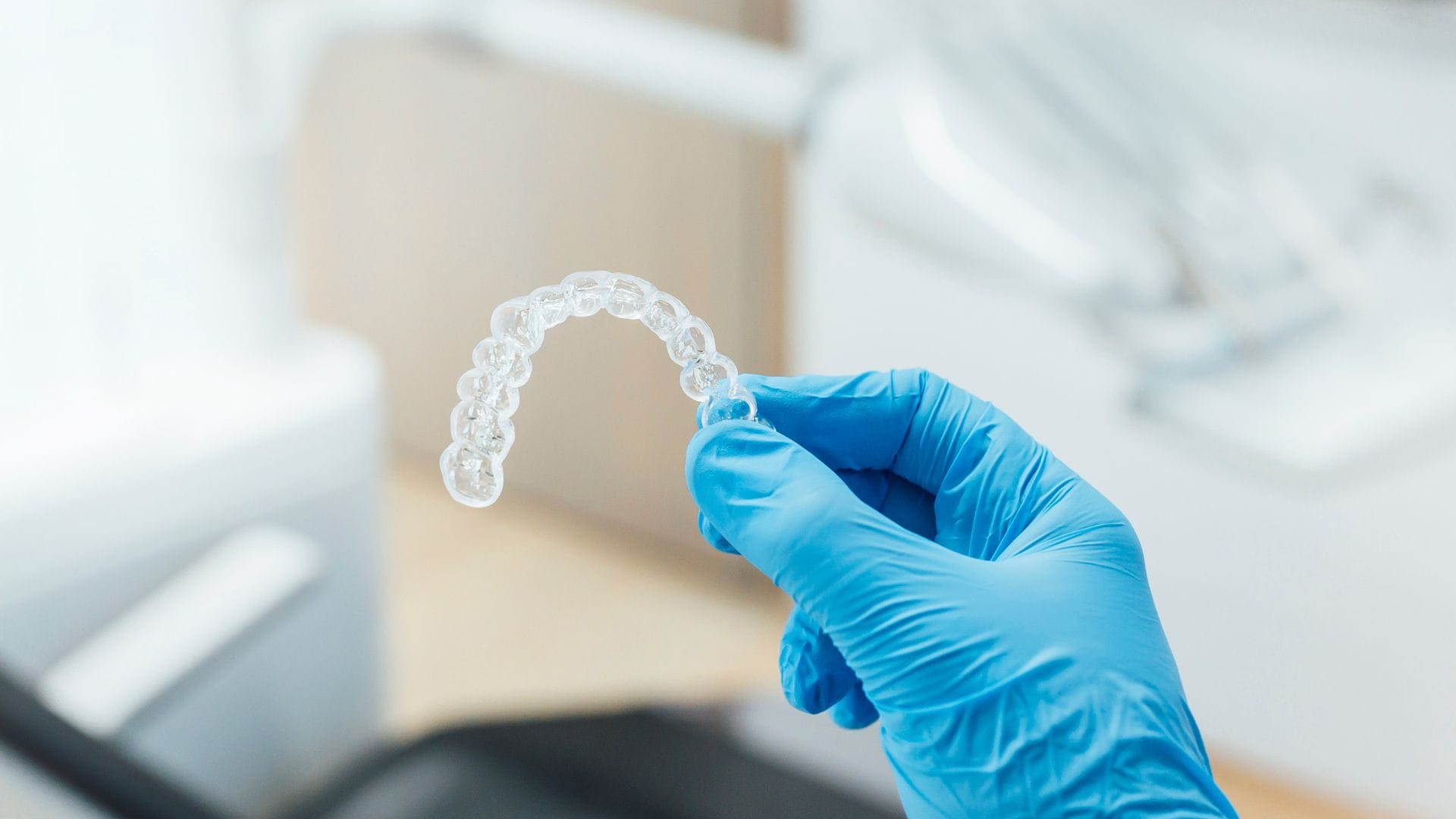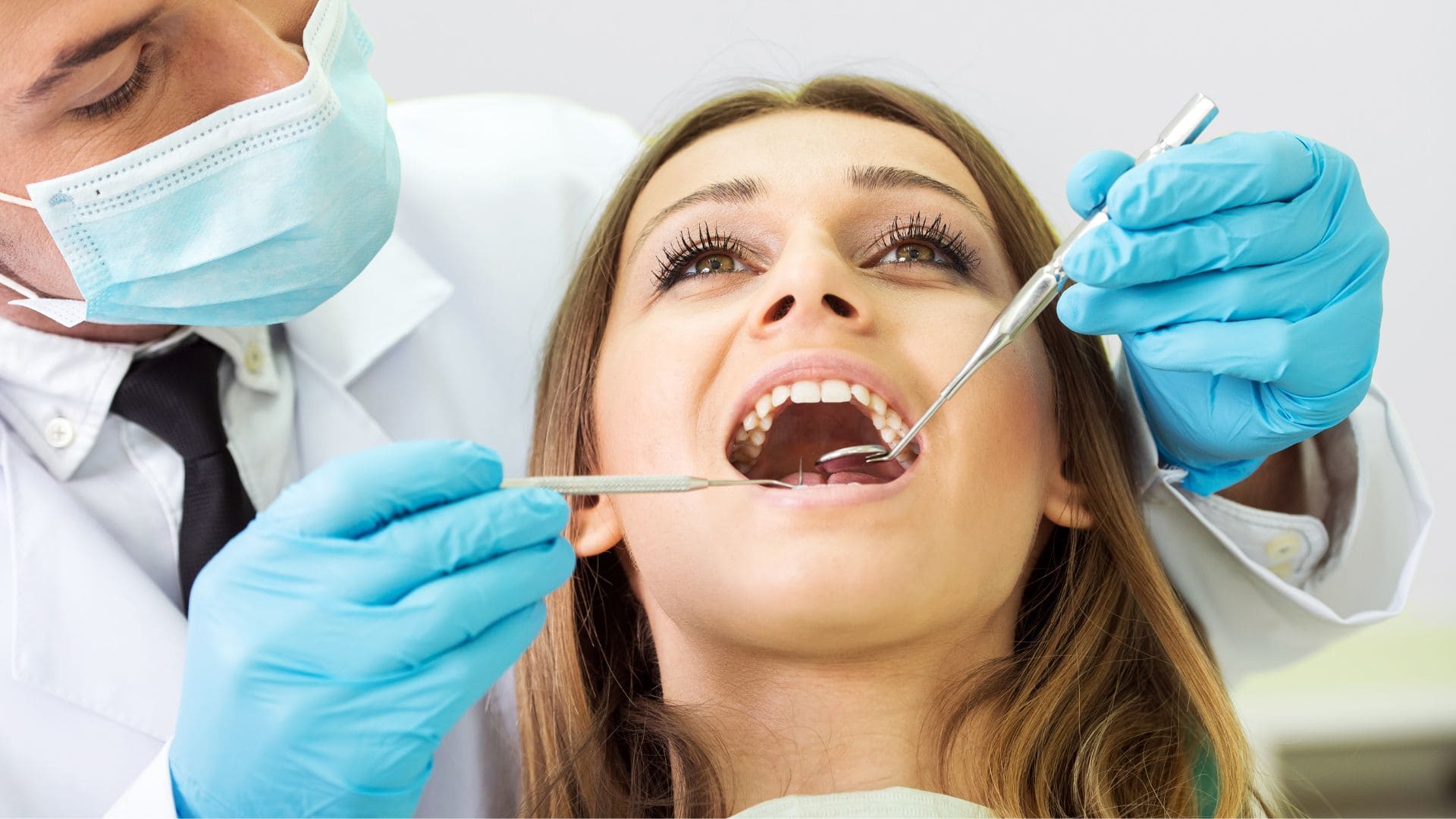
Ever catch yourself clenching your teeth and grinding them when you’re in the middle of something stressful at work? Or when your kid is acting up and not listening to you for the millionth time? It may shock you to discover that you’re doing this and lead you to wonder – how do I stop teeth grinding when awake?
While many experience teeth grinding at night, it’s also a common condition that affects many people while awake. It can lead to tooth and jaw pain. If you’re dealing with grinding your teeth during the day, also known as awake bruxism, you’re not alone.
This habit is often linked to stress, anxiety, and other emotional triggers, but the good news is that it can be managed effectively. If you’ve made reducing your stress a New Year’s Resolution, you’re on the right track.
In this post, we’ll explore what awake bruxism is, how stress contributes to it, and actionable tips to help you stop teeth grinding when awake.
What Is Awake Bruxism?
Bruxism is the medical term for teeth grinding or jaw clenching. It can happen during the day (awake bruxism) or at night (sleep bruxism). People with bruxism may experience symptoms such as jaw pain, headaches, worn-down teeth, or increased tooth sensitivity.
Awake bruxism typically occurs unconsciously while you’re focused on other tasks, like working or driving in heavy traffic.
Unlike sleep bruxism, where the grinding happens without your awareness, awake bruxism often stems from emotional triggers such as stress or deep concentration.
Reducing your stress is one of the best ways to combat awake bruxism.
The Link Between Stress and Teeth Grinding
Ever feel the fight-or-flight response increase when you’re stressed? This is a natural response, causing muscle tension, including in the jaw. Over time, this can lead to habitual clenching or grinding.
There are many daily factors that can lead to awake bruxism: pressure at work, financial worries or personal challenges. These can contribute to awake bruxism, creating a cycle where stress exacerbates grinding and grinding leads to discomfort, which in turn increases stress.
Research shows that emotional and psychological stressors are significant contributors to bruxism. If you’ve noticed that your teeth grinding worsens during stressful situations, it’s essential to address the root cause of your stress and learn techniques to manage it effectively.

How Can a Dentist Help With Awake Bruxism?
Working with a dentist can help you manage awake bruxism. Here are some ways they can help:
- Custom Mouthguards
- Dentists can create custom-fit mouthguards to protect your teeth from damage caused by grinding. Normally they’re used at night, but can also be worn during the day to prevent clenching.
- Jaw Exercises and Guidance
- Dentists can teach you specific jaw exercises to help relax your jaw muscles and reduce tension. They can also show you proper jaw positioning techniques to minimize grinding.
- Dental Assessments
- A dentist can assess your teeth for signs of damage from bruxism, such as wear, fractures, or enamel loss. When bruxism is detected early, you can get the right treatment to prevent further complications.
- Stress Management Referrals
- If stress is a significant factor, your dentist may refer you to a therapist or counsellor who specializes in stress management techniques. Collaboration with other healthcare providers can address the root causes of awake bruxism.
- Treatment for TMJ Disorders
- If bruxism has led to temporomandibular joint (TMJ) issues, a dentist can provide treatment options such as splints, physical therapy referrals, or even Botox injections to relax the jaw muscles.
5 Actionable Tips to Stop Teeth Grinding When Awake
Here are five practical ways to reduce stress and minimize teeth grinding during the day:
1. Incorporate Stress-Relief Activities
Engage in activities that help lower your overall stress levels.
Stress reduction is key to addressing awake bruxism. Try yoga, meditation, or deep breathing exercises as they can calm your mind and reduce muscle tension. Even a few minutes of controlled breathing (4 by 4’s)—inhaling for four seconds, holding for four seconds, and exhaling for four seconds—can make a big difference in managing daily stress.
2. Practice Jaw Awareness And Mindfulness
Develop a habit of checking in with your jaw position throughout the day.
Pay attention to how your jaw feels during various activities. Your jaw should remain relaxed, with your teeth slightly apart, and your tongue resting lightly against the roof of your mouth.
Remind yourself! Set notifications on your phone or sticky notes around your workspace to prompt regular jaw checks. Over time, this mindfulness will help you break the clenching habit.

3. Improve Your Work Environment
If you’re experiencing stress at work, create a workspace that minimizes tension and promotes relaxation.
An ergonomically designed workspace can reduce physical stress on your body, including your jaw.
Ensure your chair, desk, and screen are at appropriate heights to prevent slouching or leaning forward, which can contribute to jaw tension.
Adding small comforts like soft lighting, soothing ambient background music, or stress-relief objects like stress balls can also help.
4. Exercise Regularly
Use physical activity to release pent-up stress and tension.
Regular exercise is a proven way to lower stress and improve overall well-being. Activities like jogging, swimming, or dancing help release endorphins, the body’s natural stress relievers.
Simple, gentle exercises, like stretching or walking, do well in reducing muscle tension and creating a more relaxed state that counters bruxism.
5. Seek Professional Support
Consult a healthcare provider for personalized advice and treatment options.
If teeth grinding persists despite trying self-help methods, it may be time to see a dentist or therapist.
Dentists can provide mouthguards to protect your teeth, while therapists can help you develop strategies to manage stress more effectively.
Additional Tips to Prevent Awake Bruxism
What are some other simple ways to deal with stress and teeth grinding?
- Stay hydrated: Drink water! Dehydration can worsen muscle function and may contribute to grinding.
- Avoid stimulants: Reduce caffeine and sugar intake, especially during stressful periods. They just elevate your stress levels.
- Chew mindfully: Avoid chewing gum or non-food objects, as this can reinforce jaw tension.

Getting Help From Midland Bay Dental
If you’re experiencing frequent jaw pain, headaches, or noticeable damage to your teeth, it’s important to consult a healthcare professional. Untreated bruxism can lead to more severe dental issues, such as tooth fractures or temporomandibular joint (TMJ) disorders.
Addressing teeth grinding when awake is not just about protecting your teeth; it’s also about improving your overall quality of life. By managing stress and practicing the techniques outlined above, you can take significant steps toward reducing awake bruxism and achieving a healthier, more relaxed state.
At Midland Bay Dental, your smile is our priority. Everyone deserves a healthy, beautiful smile they can confidently share. Whether you’re due for a routine check-up or require help with awake bruxism, our experienced team is dedicated to providing you with the best possible care.
We prioritize your oral health, providing recommendations only when absolutely necessary. We’re here to offer dental care you can rely on. Schedule your appointment today by calling (705) 526-6441 or book an appointment online.
Follow us on Facebook.

Leave a Reply